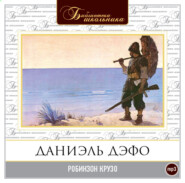По всем вопросам обращайтесь на: info@litportal.ru
(©) 2003-2024.
✖
The History of the Life and Adventures of Mr. Duncan Campell
Настройки чтения
Размер шрифта
Высота строк
Поля
And the like of inanimates; as heaven, sun, moon, star, element, earth, water, air, fire; and under the title earth, – clay, sand, gravel, stone. Metal; gold, silver, brass, copper, iron (steel), lead, tin (pewter), glass. Under the title water, put sea, pond, river, stream; under that of air, put light, dark, mist, fog, cloud, wind, rain, hail, snow, thunder, lightning, rainbow. Under that of fire; coal, flame, smoke, soot, ashes.
Under the title clothes, put woollen (cloth, stuff), linen (holland, lawn, lockarum), silk, (satin, velvet), hat, cap, band, doublet, breeches, coat, cloak, stocking, shoe, boot, shirt, petticoat, gown, &c.
Under the title house, put wall, roof, door, window, casement, room.
Under room, put shop, hall, parlour, dining-room, chamber, study, closet, kitchen, cellar, stable, &c.
And under each of these, as distinct heads, the furniture or utensils belonging thereunto; with divisions and subdivisions, as there is occasion, which I forbear to mention, that I be not too prolix.
And in like manner, from time to time, may be added more collections, or classes of names or words, conveniently digested, under distinct heads, and suitable distributions, to be written in distinct leaves or pages of his book in such order as may seem convenient.
When he is furnished with a competent number of names, though not so many as I have mentioned, it will be seasonable to teach him under the titles singular and plural, the formation of plurals from singulars, by adding s, or es; as hand, hands; face, faces; fish, fishes, &c., with some few irregulars, as man, men; woman, women; foot, feet; tooth, teeth; mouse, mice; louse, lice; ox, oxen, &c.
Which, except the irregulars, will serve for possessives, to be after taught him, which are formed by their primitives by like addition of s or es, except some few irregulars, as my, mine; thy, thine; our, ours; your, yours; his, her, hers; their, theirs, &c.
And in all those and other like cases, it will be proper first to show him the particulars, and then the general title.
Then teach him in another page or paper, the particles, a, an, the, this, that, these, those.
And the pronouns, I, me, my, mine, thou, thee, thy, thine, we, us, our, ours, ye, you, your, yours, he, him, his, she, her, hers, it, its, they, them, their, shoes, heirs, who, whom, whose.
Then under the titles substantive, adjective, teach him to connect these, as my hand, your head, his foot, his feet, her arm, her arms, our hats, their John's coat, William's band, &c.
And in order to furnish him with more adjectives, under the title colours, you may place black, white, gray, green, blue, yellow, red, &c., and having showed the particulars, let him know that these are called colours. The like for taste and smell; as sweet, bitter, sour, stink.
And for hearing, sound, noise, word.
Then for touch or feeling, hot, warm, cold, cool, wet, moist, dry, hard, soft, tough, brittle, heavy, light, &c.
From whence you may furnish him with more examples of adjectives with substantives; as white bread, brown bread, green grass, soft cheese, hard cheese, black hat, my black hat, &c.
And then inverting the order, substantive, adjective, with the verb copulative between; as silver is white, gold is yellow, lead is heavy, wood is light, snow is white, ink is black, flesh is soft, bone is hard, I am sick, I am not well, &c., which will begin to give him some notion of syntax.
In like manner when substantive and substantive are so connected; as gold is a metal, a rose is a flower, they are men, they are women, horses are beasts, geese are fowls, larks are birds, &c.
Then as those before relate to quality, you may give him some other words relating to quantity. As long, short, broad, narrow; thick, thin; high, tall, low; deep, shallow, great, big, small (little), much, little; many, few, full, empty; whole, part, piece; all, some, none, strong, weak, quick, slow, equal, unequal, bigger, less.
Then words of figure; as straight, crooked, plain, bowed, concave, hollow, convex; round, square, three-square, sphere, globe, bowl, cube, die, upright, sloping, leaning forward, leaning backward, like, unlike.
Of gesture; as stand, lie, sit, kneel, sleep.
Of motion; as move, stir, rest, walk, go, come, run, leap, ride, fall, rise, swim, sink, drawn, slide, creep, crawl, fly, pull, draw, thrust, throw, bring, fetch, carry.
Then words relating to time; place, number, weight, measure, money, &c., are, in convenient time, to be showed him distinctly; for which the teacher, according to his discretion, may take a convenient season.
As likewise the time of the day; the days of the week, the days of the month, the months of the year, and other things relating to the almanack, which he will quickly be capable to understand, if once methodically shown him.
As likewise the names and situation of places and countries, which are convenient for him to know; which may be orderly written in his book, and showed him in the map of London, England, Europe, the world, &c.
But these may be done at leisure, as likewise the practice of arithmetic, and other like pieces of learning.
In the mean time, after the concord of substantive and adjective, he is to be showed by convenient examples, that of the nominative and verb; as, for instance, I go, you see, he sits, they stand, the fire burns, the sun shines, the wind blows, the rain falls, the water runs, and the like, with the titles in the top nominative verb.
After this, under the titles nominative verb, accusative, give him examples of verbs transitive; as I see you, you see me, the fire burns the wood, the boy makes the fire, the cook roasts the meat, the butler lays the cloth, we eat our dinner.
Or even with a double accusative; as, you teach me writing or to write, John teacheth me to dance, Thomas, tell me a tale, &c.
After this you may teach him the flexion or conjugation of the verb, or what is equivalent thereunto; for in our English tongue each verb hath but two tenses, the present and the preter; two participles, the active and the passive; all the rest is performed by auxiliaries, which auxiliaries have no more tenses than the other verbs.
Those auxiliaries are, do, did, will, would, shall, should, may, might, can, could, must, ought, to, have, had, am, be, was. And if by examples you can insinuate the signification of these few words, you have taught him the whole flexion of the verb.
And here it will be convenient, once for all, to write him out a full paradigm of some one verb, suppose 'to see,' through all those auxiliaries.
The verb itself hath but these four words to be learned, see, saw, seeing, seen, save that after thou, in the second person singular, in both tenses, we add est, and in the third person singular, in the present tense, eth or es, or instead thereof, st, th, s, and so in all verbs.
Then to the auxiliaries, do, did, will, would, shall, should, may, might, can, could, must, ought, to, we join the indefinite see. And after have, had, am, be, was, the passive particle seen, and so for all other verbs.
But the auxiliary, 'am,' or 'be,' is somewhat irregular in a double form.
Am, art, is; plural are; was, wast, was; plural were.
Be, beest, be; plural be; were, wert, were; plural were.
Be, am, was, being, been.
Which, attended with the other auxiliaries, make us the whole passive voice.
All verbs, without exceptions, in the active participle, are formed by adding ing, as see, seeing; teach, teaching, &c.
The preter tense and the participle are formed regularly, by adding ed, but are often subject to contractions and other irregularities, sometimes the same in both, sometimes different, and therefore it is convenient here to give a table of verbs, especially the most usual, for those three cases, which may at once teach their signification and formation; as boil, boiled; roast, roasted, roasted; bake, baked, baked, &c.; teach, taught, taught; bring, brought, brought; buy, bought, bought, &c.; see, saw, seen; give, gave, given; take, took, taken; forsake, forsook, forsaken; write, wrote, written, &c.; with many more fit to be learned.
The verbs being thus dispatched, he is then to learn the prepositions, wherein lies the whole regimen of the noun. For diversity of cases we have none, the force of which is to be insinuated by convenient examples, suited to their different significations; as for instance, of a piece of bread, a pint of wine, the colour of a pot, the colour of gold, a ring of gold, a cup of silver, the mayor of London, the longest of all, &c.
And in like manner, for, off, on, upon, to, unto, till, until, from, at, in, within, out, without, into, out of; about, over, under; above, below; between, among; before, behind, after; for, by, with, through, against, concerning; and by this time he will be pretty well enabled to understand a single sentence.
In the last place, he is in like manner to be taught conjunctions, which serve to connect not words only, but sentences; as and, also; likewise, either or whether; neither, nor, if, then, why, wherefore, because, therefore, but, though, yet, &c.; and these illustrated by convenient examples in each case, as, Because I am cold, therefore I go to the fire, that I may be warm, for it is cold weather.
If it were fair, then it would be good walking, but however, though it rain, yet I must go, because I promised; with other like instances.
And by this time his book, if well furnished with plenty of words, and those well digested under several heads, and in good order, and well recruited from time to time as new words occur, will serve him in the nature of a dictionary and grammar.
And in case the deaf person be otherwise of a good natural capacity, and the teacher of a good sagacity, by this method, proceeding gradually step by step, you may, with diligence and due application of teacher and learner, in a year's time, or thereabouts, perceive a greater progress than you would expect, and a good foundation laid for farther instruction in matters of religion and other knowledge which may be taught by books.
It will be convenient all along to have pen, ink, and paper, ready at hand, to write down in a word what you signify to him by signs, and cause him to write, or show how to write what he signifies by signs, which way of signifying their mind by signs deaf persons are often very good at; and we must endeavour to learn their language, if I may so call it, in order to teach them ours, by showing what words answer to their signs.
It will be convenient, also, as you go along, after some convenient progress made, to express, in as plain language as may be, the import of some of the tables; as for instance: —
The head is the highest part of the body, the feet the lowest part; the face is the fore part of the head, the forehead is over the eyes, the cheeks are under the eyes, the nose is between the cheeks, the mouth is under the nose and above the chin, &c.

















